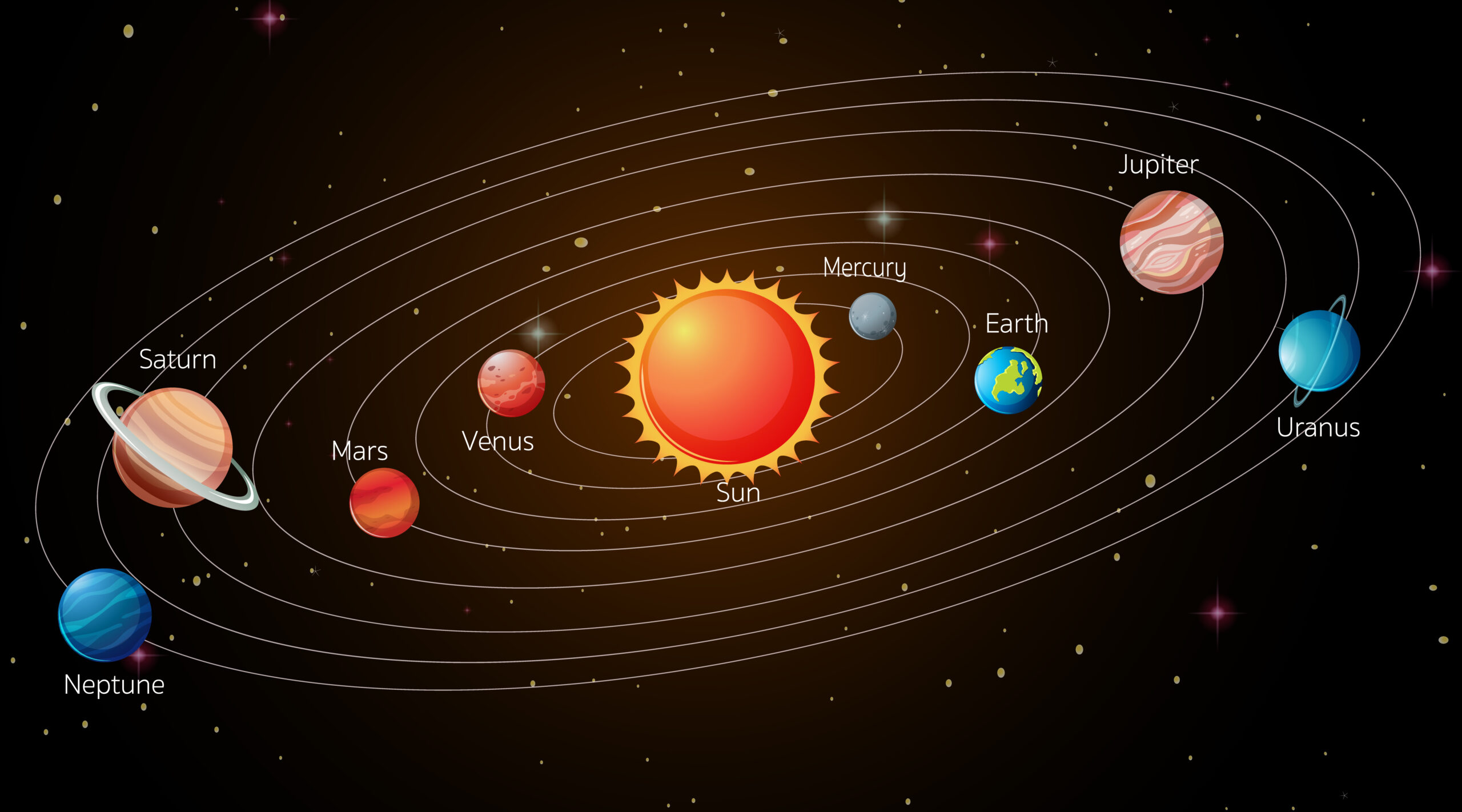Why do planets not fall into the Sun?
- 1 Why do planets not fall into the Sun?
- 1.1 Gravity’s Dominance:
- 1.2 Counteracting Centripetal Force:
- 1.3 Orbital Velocity:
- 1.4 Angular Momentum:
- 1.5 Stability of the Solar System:
- 2 Why planet education is important
- 2.1 1. Understanding helps us take action
- 2.2 2. Protecting Animals and Plants
- 2.3 3. Fixing Climate Change
- 2.4 4. Not Wasting Stuff
- 2.5 5. Making Friends With Everyone Around The World
- 3 Wrapping up: Our Amazing Universe
Hello! Have you ever wondered why planets do not fall into the Sun and all planet’s names? Let’s talk about it in simple words. The captivating celestial ballet of our solar system has been a subject of wonder and curiosity for centuries. One of the most intriguing questions about this cosmic dance is why planets, including Earth, do not succumb to the Sun’s powerful gravitational pull and plunge into its fiery embrace. The answer lies in the delicate balance between gravity, velocity, and angular momentum that governs the motion of celestial bodies.
Why do planets not fall into the Sun?

Gravity’s Dominance:
At the heart of this cosmic ballet is the force of gravity, the invisible rope that binds all celestial objects. The Sun, an enormous ball of hot, ionized gas, exerts an immense gravitational force due to its mass. This gravitational force acts as a centripetal force, pulling everything towards the Sun.
Counteracting Centripetal Force:
While gravity is pulling planets toward the Sun, another force comes into play, known as centrifugal force. As planets orbit the Sun, they are in a state of constant free fall, moving tangentially to the gravitational force. This tangential motion creates a centrifugal force that counteracts the pull of gravity, preventing the planets from falling directly into the Sun.
Orbital Velocity:
The key to the planets maintaining their delicate orbits lies in their orbital velocity. Each planet travels around the Sun at a specific speed, known as its orbital velocity, which is determined by the balance between gravitational pull and centrifugal force. If a planet were to slow down, gravity would take over, causing it to spiral inward. Conversely, if a planet were to speed up, centrifugal force would increase, pushing it outward.
Angular Momentum:
Angular momentum is another crucial factor in this cosmic equilibrium. As a planet moves in its orbit, it possesses angular momentum, a property related to its mass, velocity, and distance from the Sun. According to the conservation of angular momentum, a planet will maintain a constant value unless acted upon by an external force. This principle ensures that as a planet moves closer to the Sun during its orbit, its velocity increases, preserving the delicate balance between gravitational pull and centrifugal force.
Stability of the Solar System:
The stable orbits of planets in our solar system are a testament to the remarkable stability and balance of celestial mechanics. The initial conditions of the solar system, along with the conservation of angular momentum and the carefully calibrated interplay between gravity and centrifugal force, have resulted in the intricate dance of planets around the Sun.
Why planet education is important
It is important to know about education on Earth in today’s world. Here’s a simple explanation of why this is important.
1. Understanding helps us take action
We can make better decisions when we are more informed about our planet. The little things we do each day, such as recycling or conserving energy, can make a huge difference. We can take positive action by learning about our planet.
2. Protecting Animals and Plants
Every plant and animal on our planet plays a role. Understanding how they work together is easier when we know more about them. Knowing why they are important will help us keep them safe.
3. Fixing Climate Change
Climate change is like a sick planet. We can learn more about climate change and how we can make it better. We can make our planet happier by using cleaner energy or planting more trees.
4. Not Wasting Stuff
Water, air, and energy are limited on our planet. This knowledge helps us to use resources wisely. We can help our planet by not wasting water and electricity.
5. Making Friends With Everyone Around The World
We all share the same planet when we study it. Everyone is part of Team Earth. Understanding our planet allows us to be friends with anyone, anywhere.
Wrapping up: Our Amazing Universe
Here’s a simple answer to why planets do not crash into the Sun. Our universe is a dance floor, and planets have learned to move without getting too near the Sun’s fiery embrace.
In the grand tapestry of the cosmos, the question of why planets do not fall into the Sun finds its resolution in the harmonious interplay of gravitational forces, centrifugal forces, orbital velocity, and angular momentum. This delicate balance, forged over billions of years, is a testament to the elegance of celestial mechanics and the awe-inspiring nature of our solar system’s divine dance. As we gaze at the night sky, we are witnessing not only the beauty of distant worlds but also the intricate physics that governs their cosmic choreography.

















